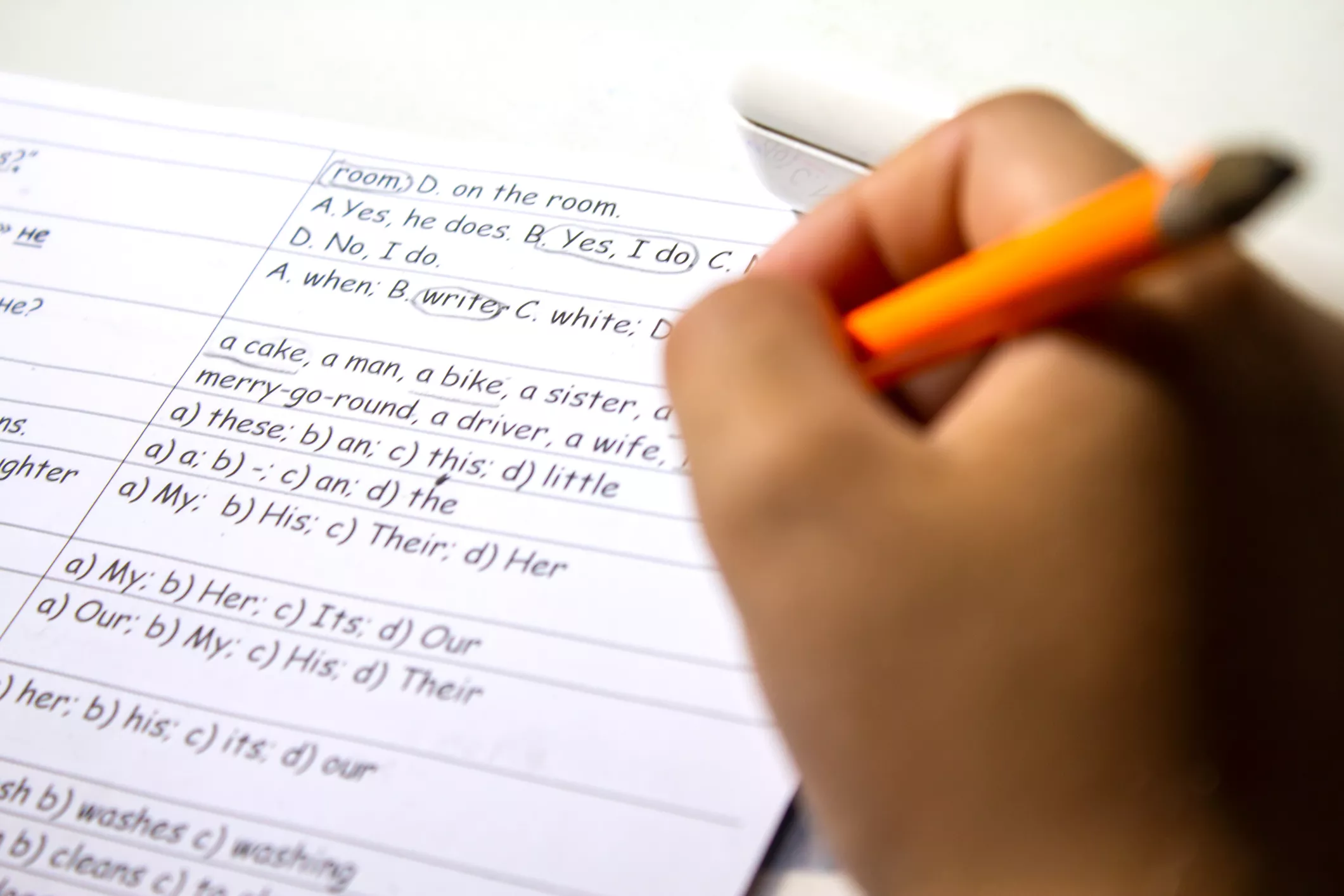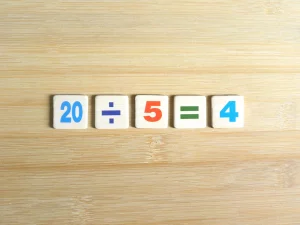In both English language and English literature exams, students are required to write essays and articles to demonstrate their writing skills, and to use a broad and impressive vocabulary. Additionally, they must make use of both their analytical and writing skills to analyse prose texts and poetry.
Since the English language is rather fluid without problem sheets or facts to memorise, it can be difficult to determine whether your child is on the right track when it comes to exam preparation.
While there isn’t exactly a ‘right’ approach to studying for English language exams, we share with you here 10 actionable tips and pieces of advice that will help your child improve their written English and give them the best chance of achieving a high grade.
1. Master a Wide Vocabulary for Creative Writing
Vocabulary is the building block of every language. In GCSE English language and literature exams, students are expected to use a wide range of words in their answers, especially when creative writing is involved.
Therefore, it’s essential to help your child build their vocabulary so that they can naturally integrate new words and phrases into their answers during their GCSE English exam. The broader their vocabulary, the more confident they’ll be during the exam, and the more advanced the language they will use in their answers.
The AQA exam board is used widely in Jersey schools and according to AQA’s mark scheme, “Candidates must use a range of vocabulary and sentence structures for clarity, purpose and effect, with accurate spelling and punctuation.” The question is, how can you help your child build their vocabulary?
2. Study Past Papers
While it’s true that GCSE English language exams don’t have model answers that can be memorised or practiced, don’t think that they won’t come in handy during exam preparation.
Referring back to the vocabulary point, past papers give candidates clues about the vocabulary they are expected to use in the exam. For example, since Paper 1 usually includes a fiction writing task, the student should become acquainted with a descriptive and narrative vocabulary and adjectives that support them in describing personalities, characters, and scenes.
Similarly, in creative writing, they’ll require idioms, similes, metaphors, and more, which they can acquire by practicing their writing on past papers. Another benefit is that they get to see the context in which these words are used rather than learning or memorising them as a list. Over time, your child will acquire their own GCSE English language word bank.
Additionally, using past papers also enables your child to familiarise themselves with the time constraints they’ll face during their GCSE English exam. Practising their writing under timed conditions in advance allows them to learn how to allocate sufficient time for each question. We often hear from parents in Jersey who are concerned about their child’s poor time management skills when it comes to writing extended pieces in English. Like all skills, this is one that needs to be practised!
3. Stress on Spelling, Punctuation, and Grammar (SPaG)
According to the AQA exam board, spelling, punctuation and grammar aren’t only important for GCSE English language exams but also for other GCSE subjects such as Geography, History, and Religious Studies. For that reason, it is vital for students to focus on SPaG, not just for the GCSE exams and their grades, but for any higher education qualifications they plan to take.
Since we’re focusing here on the GCSE English exam, it’s worth noting that SPaG carries a 20% weighting on the writing tasks grades for Paper 1 and Paper 2, further stressing their importance.
Revision guides can also be helpful and are packed full of practice questions. A workbook could also do the job. Some resources include a study guide which can then be put to the test in a workbook (which includes answers), an excellent way for your child to test themselves.
4. For GCSE English Literature Exams: Read the Books!
We live in an era of short attention spans, but also during a time when educational resources are more easily available than ever before, including online summaries for books on the GCSE curriculum. Yet, relying solely on these summaries (or on the film versions) is a grave mistake.
You really should ensure that your child reads the complete texts of the books that they’re required to read before their English language and literature exams, because if they don’t, the essays will be significantly more challenging to write.
Some students rely on the idea that they can read the text during the exam, which is sometimes allowed, but even then, it’s much better to read it in detail beforehand to gain an in-depth understanding of the plot and any plot twists. There really won’t be enough time during the exam to read and understand the text as thoroughly as is necessary.
Encourage your child to do the reading during their revision period: you can assist by creating mind maps, flashcards, sticky notes, and similar to help them retain the information.
That’s not to say that film adaptations of texts or books shouldn’t be watched – far from it! In fact, they can help students visualise the story and emphasise the vital themes. Let them watch and enjoy, but not rely on the film versions!
5. Make Use of Revision Resources
Speaking of the availability of online resources, it’s a good idea to make use of them whenever possible while revising. Websites like SparkNotes provide students with a platform for studying sample essays and texts and gain an understanding of the different ways texts can be interpreted.
Other websites offer quizzes (with answers) that can motivate your child to examine their knowledge and check it against the correct or most common answers.
6. Always Review GCSE English Language Class Notes
Believe it or not, many students either neglect or forget to revise their school class notes before taking the GCSE English exam. Instead, they rely on online revision resources: the reality is that both are useful.
During your child’s revision sessions, make sure they review their notes, practice essays, mock English exams, and feedback and marks received from their tutors for previous work.
More often than not, class notes contain valuable information or tutor comments that students can use to improve their answers, as well as indications of their areas of strength.
7. Read A Lot!
Remember AQA’s mark scheme that emphasises not only vocabulary but also sentence structure? Well, to understand and master English in a wider context, your child should be encouraged to read frequently – anything they come across on any subject is useful, be it newspapers, poetry, online articles, or texts. Jersey and Guernsey both have above-average town libraries where your child will be able to find books that match their interests.
By reading regularly, your child will absorb almost subconsciously how language is used to convey messages, the correct grammar to use with each tense, and of course, spelling. In doing so, they will strengthen their English language skills as well as their comprehension of different types of texts, both of which are essential for success in their GCSE exam.
What’s more, if you can get your child to analyse what they have read, that also counts as revising!
8. Understand How to Structure Answers
Many students presume that just because English subjects don’t have model answers or set texts, there is no specific method of structuring the answers. However, that’s not true.
Your child will be asked to work with different forms of writing, which is why they must be able to identify the differences between them and how each is structured. For example, poetry has an entirely different structure to a report or a newspaper article. Accordingly, make sure your child clearly understands how they differ from one another. Perhaps buy the odd copy of the Jersey Evening Post or Guernsey Press!
To help them practice, you could encourage them to devise a plan for each type of writing, identifying how they will go about answering the questions using each one. Another piece of advice is to focus on literary techniques and how they’re used within each writing type.
9. Practice Writing Daily and Get Feedback from Teachers
As with anything else, writing adheres to the saying ‘practice makes perfect’. Naturally, your child won’t study past papers every day, but they should write something daily. The more they adjust to planning essays and writing them, the better prepared they’ll be for the exam.
Furthermore, your child’s English teacher, or one of our English tutors in Jersey, will be happy to provide feedback and advice to support students’ learning, so it would be constructive and beneficial to ask your child’s tutor to check their plans and essays and provide feedback and tips.
10. Focus on the Mark Scheme
In the midst of all your child’s revision and studying, they can forget to pause and look at the mark scheme. You can do this instead. To ensure that your child gets a good grade, you need to know precisely what the examiners are looking for.
By understanding the assessment objectives and language expectations through the available examples, you can make sure your child understands how to integrate them into their answers and collect as many marks as possible, resulting in a higher grade.
Most aspects of the mark scheme are fairly simple to incorporate into students’ essays – all you need to do is develop a checklist of examiner expectations and encourage your child to give those aspects the necessary attention!
They’re All Set!
By following these tips, your child will be calm and confident when taking their exam. Ultimately, the key to obtaining good marks in the GCSE English exam is simply to understand what each essay question is asking – only then will your child be able to determine the right approach to take and which skill to utilise.
And that should be pretty easy if you follow our actionable advice and techniques and prepare well! If you live in Jersey or Guernsey and are interested in English (or maths) tutoring for your child, please don’t hesitate to get in touch with us.





